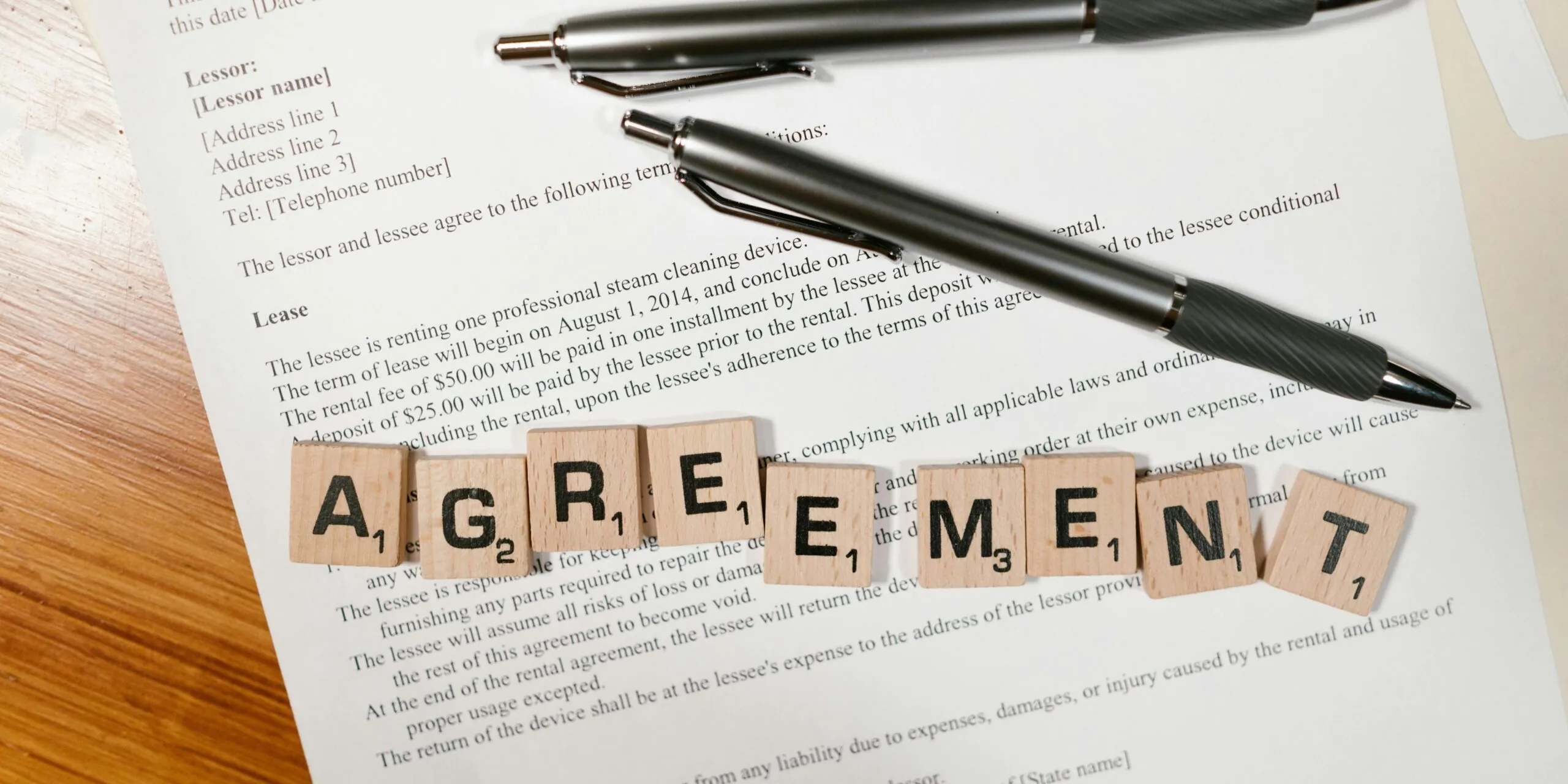- What Is a Commercial Lease Agreement?
- Types of Commercial Lease Agreements
- Gross Lease
- Net Lease
- Percentage Lease
- Key Considerations When Reviewing a Lease Agreement
- Rent and Additional Costs
- Lease Term and Renewal Options
- Zoning and Permitted Use
- Maintenance and Repairs
- Assignment and Subleasing
- Termination Clauses
- State-Specific Considerations for New Jersey and New York
- How to Negotiate a Commercial Lease
- Common Mistakes to Avoid
- Steps to Ensure a Smooth Leasing Process
- Final Thoughts
Signing a commercial lease is a significant step for any business, whether you’re launching a retail store, leasing office space, or opening a restaurant. The terms of the lease can have far-reaching effects on your operations, finances, and flexibility. For businesses in New Jersey and New York, the process is often even more complex due to state-specific regulations and industry nuances. This guide explores the essential aspects of commercial leases, helping you navigate the process with confidence and avoid common mistakes.
What Is a Commercial Lease Agreement?
A commercial lease is a legally binding contract between a landlord and a business tenant that defines the terms under which the tenant rents property for commercial use. Unlike residential leases, commercial leases are generally more negotiable, offer fewer legal protections for tenants, and often span longer terms, typically ranging from three to ten years.
Commercial leases also place a higher burden on tenants to understand the terms and responsibilities outlined in the agreement. From rent and maintenance to termination clauses, every detail of the lease can directly impact your business’s success. For this reason, it’s crucial to approach the process with a thorough understanding of the document and your rights as a tenant.
Types of Commercial Lease Agreements
Commercial leases vary widely, with each type dictating how costs are allocated between the landlord and tenant. Understanding these variations is essential before signing an agreement.
Gross Lease
In a gross lease, the tenant pays a fixed monthly rent, while the landlord covers most expenses, such as property taxes, insurance, and maintenance. This option offers simplicity and predictability for tenants but may come with a higher base rent to account for the landlord’s responsibilities.
Net Lease
A net lease shifts more financial responsibility to the tenant, who pays rent plus additional expenses, such as taxes, insurance, or maintenance. Net leases are subdivided into:
- Single Net Lease: Tenant pays one additional cost, typically property taxes.
- Double Net Lease: Tenant covers property taxes and insurance.
- Triple Net Lease: Tenant is responsible for property taxes, insurance, and maintenance.
Percentage Lease
A percentage lease requires the tenant to pay a base rent plus a percentage of their monthly revenue. This structure is common in retail spaces and can align landlord and tenant incentives by tying rent to the tenant’s business success.
Modified Gross Lease
A modified gross lease combines elements of gross and net leases, with costs shared between the landlord and tenant. For instance, the tenant might pay a fixed rent that includes some expenses while covering others, such as utilities, separately.
Key Considerations When Reviewing a Lease Agreement
When entering into a commercial lease, certain terms and provisions require close attention. Carefully evaluating these elements can help you avoid costly surprises and ensure the lease supports your business’s needs.
Rent and Additional Costs
The base rent is the most obvious expense, but additional costs can significantly impact your total financial obligations. These may include common area maintenance (CAM) fees, which cover shared spaces like hallways and parking lots, as well as utilities and property taxes. Be sure to clarify whether these costs are included in the base rent or billed separately, and determine if the rent will increase over time due to escalations or adjustments.
Lease Term and Renewal Options
The length of the lease plays a critical role in balancing flexibility and stability. Short-term leases offer greater flexibility, particularly for newer businesses, while long-term leases provide stability and may allow for better-negotiated terms. Renewal clauses are equally important, as they dictate your ability to extend the lease and clarify how rent will be adjusted during renewal periods.
Zoning and Permitted Use
Before signing a lease, confirm that the property is appropriately zoned for your intended business activities. Zoning restrictions can vary significantly by location, particularly in New York City, where borough-specific rules apply. Ensure that the lease specifies the permitted uses for the space to avoid disputes with the landlord or local authorities.
Maintenance and Repairs
The lease should clearly outline responsibilities for maintenance and repairs. Landlords are typically responsible for structural repairs, HVAC systems, and major utilities, while tenants handle interior maintenance and minor repairs. Understanding these obligations can prevent disputes and ensure smooth operations during your tenancy.
Assignment and Subleasing
If your business needs change, the ability to assign the lease to another party or sublet the space can provide valuable flexibility. However, some landlords restrict or prohibit subleasing, so it’s essential to confirm these provisions upfront.
Termination Clauses
Termination clauses dictate the circumstances under which you can exit the lease early. Look for provisions that allow for early termination with minimal penalties in cases such as business relocation or unforeseen challenges. Additionally, review the notice period required for non-renewal or termination.
State-Specific Considerations for New Jersey and New York
New Jersey
In New Jersey, commercial lease agreements are subject to specific laws and regulations, including the Consumer Fraud Act (CFA), which protects tenants from deceptive practices by landlords. Businesses operating in industries like manufacturing or automotive must also comply with strict environmental regulations, which may require additional lease provisions or compliance measures.
New York
New York leases often include unique provisions, such as the Good Guy Guarantee, which allows tenants to exit a lease early without liability for future rent, provided certain conditions are met. Additionally, zoning rules in New York City can vary widely depending on the borough, making it crucial to verify that the space meets your operational needs before signing.
How to Negotiate a Commercial Lease
Effective negotiation can help you secure favorable terms that align with your business goals. Start by hiring an experienced business attorney to review the lease and identify potential pitfalls. Researching local market rates will give you leverage to negotiate fair rent terms.
Request modifications as needed, such as rent reductions for long-term leases, tenant improvement allowances for renovations, or caps on CAM fees to prevent unexpected cost spikes. Ensure the landlord’s responsibilities for property maintenance, repairs, and utilities are clearly outlined to avoid ambiguity during your tenancy.
Common Mistakes to Avoid
Rushing into a commercial lease without fully understanding the terms can lead to costly consequences. Avoid common pitfalls by carefully reviewing the agreement and seeking professional advice. Common mistakes include:
- Ignoring Hidden Costs: Failing to account for CAM fees, property taxes, or other additional expenses can inflate your financial obligations.
- Overlooking Zoning Laws: Operating in a space not zoned for your business activities can result in legal fines or eviction.
- Skipping Professional Advice: A commercial lease is a complex document, and attempting to navigate it without legal expertise can leave you vulnerable to unfavorable terms.
Steps to Ensure a Smooth Leasing Process
- Assess Your Needs: Determine the space requirements, budget, and features important for your business, such as parking, accessibility, and foot traffic.
- Conduct Due Diligence: Verify the landlord’s authority to lease the property and inspect the space for necessary repairs or improvements.
- Negotiate Key Terms: Work with an attorney to ensure the lease reflects your business goals and includes favorable provisions.
- Track Important Dates: Keep a signed copy of the lease and monitor deadlines for renewals, rent escalations, and termination notices.
Final Thoughts
Signing a commercial lease is a critical milestone for your business. By understanding key terms, negotiating favorable provisions, and seeking professional guidance, you can secure a lease that supports your operations and long-term success.
If you’re entering into a commercial lease in New York or New Jersey, our experienced business attorneys can help you navigate the process. We’ll review your lease, negotiate on your behalf, and ensure your business is protected. Contact us today to get started.
Mitchell C. Beinhaker, Esq. is a business lawyer and estates attorney who runs a solo legal & consulting practice representing business owners, entrepreneurs, executives, and professionals. Through his 30+ years of experience, Mitchell has handled business development, marketing, firm management, along with business transactional work for clients of the firm. He has extensive experience with corporate governance, commercial transactions, real estate, and risk analysis. Using his years of practical experience, he drafts contracts, negotiates purchases, and can manage outside counsel for any corporate situation. For business owners and executives, he creates and implements estate plans, along with succession plans to help companies continue for future generations.
Mitchell is the co-author of 10 Ways to Get Sued by Anyone & Everyone: the small business owners guide to staying out of court, available in paperback and kindle from Amazon.
If you need legal help with any of our services, contact our office for a free consultation. You can email us at info@beinhakerlaw.com. To learn more about Mitchell and his practice, visit beinhakerlaw.com.
Beinhaker Law and Mitchell C. Beinhaker, Esq. do not guarantee the accuracy of any information provided in this article. Its not to be construed as advice of any kind. Be sure to check with your local professionals before making any decisions.



